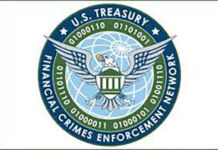
Readers may recall I raised the question of how changes in the makeup of the Dallas COA would affect Texas Anti-Slapp Motions.
I blogged about substantive opinions that came out on March 8, 2019
and April 29, 2019
Here are three more, and while lawyers are not typically math adept, this math is pretty easy.
On May 1, 2019, in Misko v. Johns, No. 05-18-00487, the Dallas COA upheld the denial of a Texas Anti-Slapp Motion targeted at discovery sanctions. As an aside, this is the second trip to the Dallas COA on this long running dispute. Relevant to this opinion, Johns sought discovery abuse sanctions against Misko, which included dismissal of Misko’s claims and attorneys’ fees totaling $147,290.31. Misko countered with a Texas Anti-Slapp Motion arguing that the discovery abuse sanctions was a “legal action” subject to the TCPA. The Dallas COA responded succinctly:
We conclude the definition of “legal action” in the TCPA does not encompass a motion for sanctions alleging discovery abuse by a party that is filed after, and in this case years after, the commencement of litigation. Further, construing the TCPA to apply to such a motion would open the floodgates to serial motions to dismiss during the pendency of litigation based on conduct ancillary to the substantive claims in the case. Accordingly, we affirm the trial court’s denial of Misko’s motion to dismiss
The takeaway – discovery abuse sanctions do not trigger the Texas Anti-Slapp.
On May 1, 2019, in Stroud v. Clearview, 05-18-00729-CV, the Dallas COA upheld the denial of a Texas Anti-Slapp motion against claims of fraud, breach of fiduciary duty, and breach of a non-solicitation clause. Stroud, a then former employee of Clearview, asserted that an email she sent to Clearview was an exercise of her right of free speech and raised issues of public concern concerning Clearview’s ability to provide electricity to its consumer. Through a painstaking analysis, the Dallas COA rejected this contention and upheld the trial court’s denial of Stroud’s Texas Anti-Slapp motion.
The takeaway is carefully consider whether the claims implicate a matter of public concern.
On May 6, 2019, in Vodicka v. Tobolowsky, No. 05-17-00727-CV, the Dallas COA did not rule on the alleged failure of the trial court to set a hearing on defendant’s Texas Anti-Slapp Motion. Because the defendant adduced no evidence in the record that the trial court “denied setting” the hearing and defendant did not object to the lack of a timely hearing there was nothing for the COA to review.
The take away is set your hearing.
On May 15, 2019, in Staff Care, Inc. v. Eskridge Enterprises, LLC, Ca. No. 05-18-00732-CV, upheld the denial of Texas Anti-Slapp motion against Eskridge’s counterclaims of tortious interference and DTPA violations. The underlying business dispute involved a locum tenems contract where Staff Care provided physicians to Eskridge and Eskridge placed the physicians typically within the Veterans Administration facilities.
Staff Care argued that complaints it made to Eskridge were (a) the basis of Eskridge’s counterclaims, and (b) protected under right of free speech and right of association. Meticulously, the Dallas COA parsed through the various communications to conclude that most of them, while mentioning the healthcare industry, were little more than a business dispute. And because this was simply a business dispute, the tortious interference claim was not protected under right of free speech or right of association.
However, one set of communications by Staff Care, allegedly to physicians in the marketplace, was a communication about Staff Care’s services in the marketplace. Therefore, those communications (the basis for the DTPA claim), were protected under the Step 1 analysis of the Texas Anti-Slapp.
But those same set of communications about Staff Care’s services in the marketplace also triggered the “commercial speech exemption” (what I call the Step 1 ½ analysis). Thus, Staff Care’s Texas Anti-Slapp motion failed.
For a refresher on the 3 ½ steps of a Texas Anti-Slapp click on this link.
https://www.antislapptexas.com/forlawyers
For refresher on the “commercial speech exemption, click on this link.
On May 16, 2019, in Krasnicki v. Tactical Entertainment, LLC, No. 05-18-00463-CV, the Dallas COA upheld the denial of a Texas Anti-Slapp Motion against claims of fraudulent inducement, DTPA, and negligent misrepresentation. Krasnicki asserted three communications were protected under Free Speech and Right of Association. The Dallas COA dispensed with the first two communications because they were not the basis for the claim. The third communication failed to trigger the TCPA because it was based on a failure to communicate with the plaintiff.
The take away is that absence of a communication (i.e. claims based on non-disclosure of information) are not protected by the Texas Anti-Slapp.
(This post was edited on May 17, 2019 at 5:25 p.m. thanks to some loyal readers who reminded me of Stroud and Staff Care, which I had read, but forgot to include).






